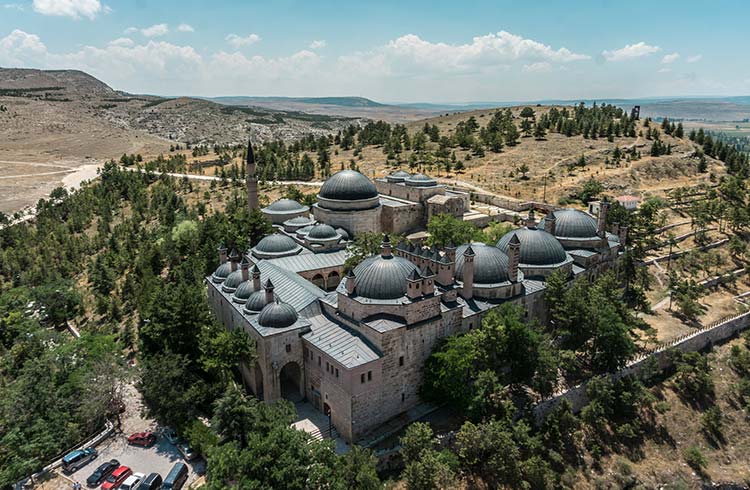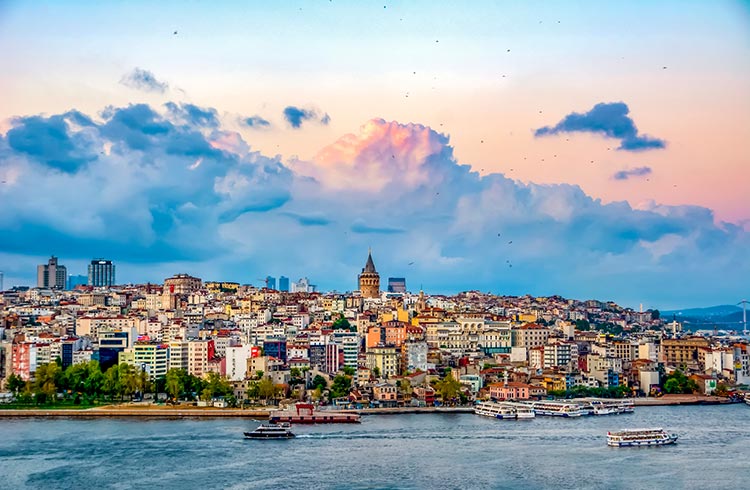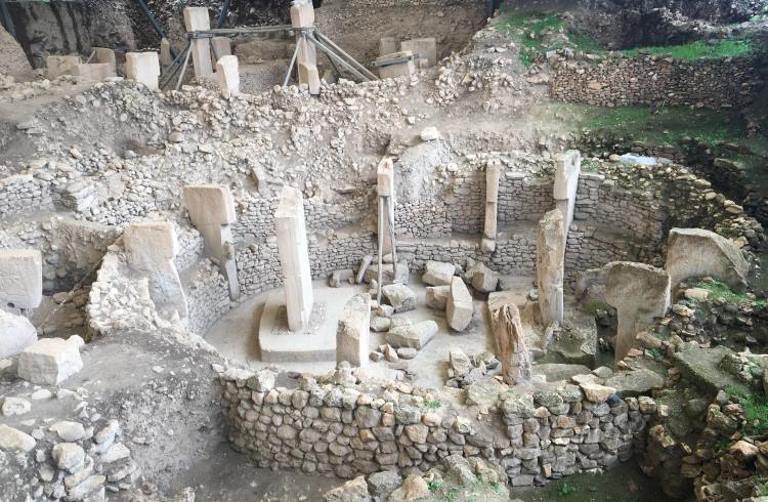How Strict is Islam in Turkey? Essential Tips for Travelers
Turkey is 98.6% Muslim. What does that mean for travelers who may not know much about Islam or the way it's practiced in Turkey?
 Photo © Getty Images/SkyVizyon
Photo © Getty Images/SkyVizyon
Due in part to how Western media portrays Muslim countries, some travelers may have concerns about visiting Turkey.
In reality, Islam shapes travelers’ experiences in overwhelmingly positive ways — through the indelible impressions it has left on everything from Turkish foodways to the country’s iconic architecture.
Islam in Turkey dates back to the 8th century, when Turkic tribes fought alongside Arab Muslims against Chinese forces at the Battle of Talas in 751 A.D. Spurred by the influence of ruling dynasties, many people converted to Islam over the next few centuries.
Modern Turkey was founded in 1923 as a distinctly secular republic — a key difference between Turkey and countries such as Saudi Arabia or Pakistan — but Islam remains inextricably intertwined with Turkish culture.
Turkish children are designated Muslim at birth unless their parents are affiliated with another religion, leading to a population that is 99% Muslim but diverse in how strictly individuals and families observe Islam.
Regardless of where they personally fall on the spectrum, Turkish people tend to approach religion with respect and decorum. We spoke with Fatih Özkan, from the Süleymaniye Mosque Cultural Info Center, about what you should keep in mind while traveling in Turkey so you can do the same.
- Muslim practices in Turkey
- Call to prayer in Turkey
- Ramadan
- Visiting a mosque in Turkey
- Eating and drinking in Turkey
- Other public behavior to avoid in Turkey
- Religious extremism in Turkey
Muslim practices in Turkey
The most prevalent form of Islam practiced in Turkey is Sunni Islam — another departure from neighboring countries where most people adhere to Shia Islam. Turkey is also known for its Sufi community, an Islamic mystic tradition associated with the city of Konya and the poet Rumi.
Devotees, known in the West as “whirling dervishes” use a spinning movement to deepen their spiritual connection. Some groups provide demonstrations where visitors can observe this tradition in person.
It’s good to know the roots of religious traditions but, ultimately, Özkan cautions against putting too much emphasis on the different titles and sects of Islam, which the Prophet Mohammed never mentioned and are not in the Koran.
Call to prayer in Turkey
One way that observant Muslims show their devotion is by praying throughout the day.
In every Turkish city, the call to prayer reverberates from mosque speakers five times daily, announcing central tenets of the Islamic faith and reminding Muslims to pray. The first one takes place before sunrise and admonishes the faithful to remember that “prayer is better than sleep.”
When they hear the call, practicing Muslims stop what they’re doing, kneel facing Mecca, and pray. Non-Muslims are not expected to partake in this, but there is some etiquette you should practice when you encounter others who do:
- Avoid standing in front of anyone who is praying
- Stay silent during the call
- Give worshippers their space and refrain from taking pictures of them.
Ramadan
Ramadan, called Ramazan in Turkey, is a month-long period of fasting that Muslims around the world observe each year, usually in May and June. (The actual dates vary according to the Islamic lunar calendar.) Participants eschew food and beverages — this includes water — from sunrise to sunset, breaking their daily fast with a celebratory meal, or iftar.
Taking part in the fast “is a kind of praying,” explains Özkan, and people who do are intentionally “kind of starving” as a way to build empathy. “They are trying to understand what poor people feel. Otherwise, how can we understand that?”
No one expects visiting foreigners to fast – many Turks don’t. But if, during Ramadan, you happen to be traveling in any Muslim country — or even a predominantly Muslim community or neighborhood — you can be courteous by not eating and drinking in public during the day. Opt for indoor seating in restaurants and if you need water, sip it discreetly. At sunset, head to restaurants to sample special bread, dates, and other delicacies that are traditionally served at the meal.
Visiting a mosque in Turkey
Visiting a mosque is one of the best ways to learn about Muslim culture and experience unparalleled examples of Islamic architecture and design, which is typified by jewel tones, gold embellishment, and constellations of geometric patterns. Many historic mosques, including the Süleymaniye Mosque where Özkan works, are part of larger complexes that once included schools, cemeteries, and shops.
Mosques are open to all visitors except during prayer times. (Non-Turkish Muslim travelers are always free to join in prayers, says Özkan.) You can also engage registered guides for an educational tour of mosques like Aya Sofya, the Blue Mosque, and Kariye Mosque.
During prayer, the Süleymaniye Mosque Cultural Info Center offers 20-minute presentations about Turkish culture, with complimentary tea or Turkish coffee — and sometimes even soup and baklava, says Özkan. The center’s volunteers are also available inside the mosque to answer questions about the history and architecture of this striking space.
When entering a mosque, both men and women need to have their legs covered and shoes removed. Women are expected to cover their heads with a scarf. (Don’t worry if you forget; most mosques have scarves you can borrow.)
Note that many Muslims come to mosques to pray or read the Koran or just relax in a sacred space even outside scheduled prayer times. Respect them by refraining from public displays of affection, taking pictures of them, or engaging in disruptive and loud behavior.
Eating and drinking in Turkey
Islam does have some guidelines for food and drink, but they are unlikely to affect travelers, particularly in major cities like Istanbul.
Pork is not widely available and very few restaurants serve it. Alcohol, on the other hand, is, even though Islam technically prohibits intoxicants.
That being said, Özkan suggests having “clear limits” when you are drinking in public. Keep it close to your hotel if you can and understand that no one really wants to deal with drunk, rowdy foreigners.
Other public behavior to avoid in Turkey
In addition to public drunkenness, public displays of affection are not customary in Turkey. While kissing both cheeks is a typical greeting, kissing on the mouth is considered private.
“Muslims in Turkey and generally [in the] Islamic world, they keep these touches [and] physical things in their houses,” says Özkan.
Turkish women also tend to dress more modestly than their Western counterparts, particularly in conservative communities like Fatih or Uskudar in Istanbul or smaller towns and villages. That being said, Özkan believes that men should refrain from staring at women — something male travelers should also keep in mind during their time in Turkey.
“Allah created us and… we have a freedom” of behavior, he says, but “that free will brings us responsibility.”
Religious extremism in Turkey
Just because a community is conservative doesn’t mean it is a hotbed of religious or political extremism — or a threat to your safety.
Despite what Western news media may imply, Islam doesn’t make people more violent than any other religion does. You’re no more likely to encounter extremism in Turkey than you are in your home country.
Freedom of speech and assembly is handled differently in Turkey than in Western countries, so if you encounter protests or demonstrations during your travels, it’s best to simply walk on by. Also, check your government’s current advisories before traveling to southeastern Turkey, an area of fluid politics due to its proximity to conflict in Iraq, Iran, and Syria.
All smart travelers know the importance of paying respect to local customs and beliefs. But you are much more likely to be bitten by wild animals or get struck by lightning than you are to be kidnapped or caught within the midst of a religious or political upheaval while traveling in Turkey.
Related articles
Simple and flexible travel insurance
You can buy at home or while traveling, and claim online from anywhere in the world. With 150+ adventure activities covered and 24/7 emergency assistance.
Get a quote


No Comments